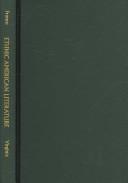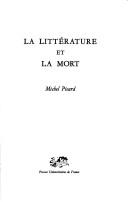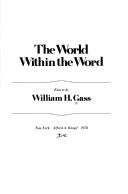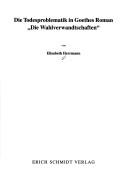| Listing 1 - 10 of 31 | << page >> |
Sort by
|
Book
ISBN: 9788865506875 8865506873 Year: 2019 Publisher: Lucca Maria Pacini Fazzi editore
Abstract | Keywords | Export | Availability | Bookmark
 Loading...
Loading...Choose an application
- Reference Manager
- EndNote
- RefWorks (Direct export to RefWorks)
Italian literature --- Consolation in literature --- Bereavement in literature --- History and criticism
Book
ISBN: 9782330118044 233011804X Year: 2019 Publisher: Arles : Actes sud,
Abstract | Keywords | Export | Availability | Bookmark
 Loading...
Loading...Choose an application
- Reference Manager
- EndNote
- RefWorks (Direct export to RefWorks)
La 4e de couverture indique : "C'est grâce aux mots que l'on cesse d'être seul face à la mort. Mais d'abord, ils manquent : quand la mort s'abat, elle abasourdit, elle frappe de mutité. C'est alors que les écrivains peuvent venir en aide et répondre au besoin de faire sens pour que quelque chose soit sauvé du gouffre. Face à la tombe, la littérature donne aux endeuillés une voix et le sentiment d'une communauté. Elle est ainsi au coeur de ce qui constitue le propre de l'homme, seul être vivant à honorer ses morts."
Death in literature. --- Bereavement in literature. --- Death in literature --- Bereavement in literature --- Deuil dans la littérature. --- Deuil --- Deuil. --- Littérature. --- Mort dans la littérature. --- Mort --- Mort. --- Tombeaux (genre littéraire). --- Dans la littérature. --- Watthée-Delmotte, Myriam. --- Morts --- Dans la littérature
Book
ISBN: 3031463455 Year: 2024 Publisher: Cham : Springer International Publishing : Imprint: Palgrave Macmillan,
Abstract | Keywords | Export | Availability | Bookmark
 Loading...
Loading...Choose an application
- Reference Manager
- EndNote
- RefWorks (Direct export to RefWorks)
This volume examines a selection of life writing in English by authors from the South West Indian Ocean, namely South Africa, East Africa, Mauritius and Sri Lanka. The two motifs that run through the chapters – mourning and resilience – are theoretical frameworks that have so far not been brought into conversation in this way. The combination of trauma studies and autobiographical analysis sharpens the focus of the discussions on Indian Ocean life writing, privileging an Indian Ocean imaginary that is transnational and cross-oceanic in its orientation and pointing to networks of connections that transcend the nation state, which is often the origin of trauma in the first place. Filling a gap in Indian Ocean studies in its close readings of trauma and resilience, the book also broadens perspectives on postcolonial life writing since little attention has been paid so far to Indian Ocean autobiographical literary products. By the same token, the volume also enriches the field of Indian Ocean literary studies by incorporating life writing as an aesthetic strategy which helps to configure Indian Ocean subjectivities. Esther Pujolràs-Noguer is a Serra-Húnter Fellow in the Department of Foreign Languages and Literatures of the University of Lleida, Spain. She teaches postcolonial literature and culture, gender studies and poetry in English. She is a poet and uses creative writing as a therapeutic tool to help people overcome traumas related to gender violence and forced displacements. She is the co-director with Felicity Hand of the research group Ratnakara, which explores the literatures and cultures of the South West Indian Ocean. Felicity Hand is Honorary Professor in the English Department of the Autonomous University of Barcelona, Spain.
Autobiography. --- Bereavement in literature. --- Literature. --- Prose literature. --- Literature, Modern --- Comparative literature. --- World Literature. --- Narrative Text and Prose. --- Contemporary Literature. --- Comparative Literature. --- 20th century. --- 21st century.
Book
ISBN: 9782503528588 2503528589 9782503539034 Year: 2010 Volume: 19 Publisher: Tunhout: Brepols,
Abstract | Keywords | Export | Availability | Bookmark
 Loading...
Loading...Choose an application
- Reference Manager
- EndNote
- RefWorks (Direct export to RefWorks)
This is a collection of essays on the subject of lament in the medieval period, with a particular emphasis on parental grief. The analysis of texts about pain and grief is an increasingly important area in medieval studies, offering as it does a means of exploring the ways in which cultural meanings arise from loss and processes of mourning. The international scholars who come together to produce this volume discuss subjects as diverse as lament psalms in Old and Middle English, medieval Latin laments, mourning in Anglo-Saxon literature, mourning through objects, medieval art and archaeology, Old French poetic elegy, skaldic poetry, medieval women’s writing, Old Polish drama, English massacre plays, and Middle English nativity lyrics.
History of Europe --- Thematology --- anno 500-1499 --- Bereavement in literature --- Death in literature --- Dood in de literatuur --- Mort dans la littérature --- Sterfte in de literatuur --- Deuil --- --Peine, --- Défunt --- --Littérature --- --Moyen âge, --- Literature, Medieval --- History and criticism --- Bereavement in literature. --- Death in literature. --- Laments --- History and criticism. --- Languages & Literatures --- Literature - General --- Literature [Medieval ] --- Peine, --- Littérature --- Moyen âge, 476-1492 --- Literature, Medieval - History and criticism
Book
ISBN: 9780817389543 0817389547 9780817319021 0817319026 Year: 2016 Publisher: Tuscaloosa, Alabama : The University of Alabama Press,
Abstract | Keywords | Export | Availability | Bookmark
 Loading...
Loading...Choose an application
- Reference Manager
- EndNote
- RefWorks (Direct export to RefWorks)
Harold K. Bush's 'Continuing bonds with the dead' examines the profound transfiguration that the death of a child wrought on the literary work of nineteenth-century American writers. Taking as his subjects Harriet Beecher Stowe, Abraham Lincoln, William Dean Howells, Mark Twain, and W. E. B. Du Bois, Bush demonstrates how the death of a child became the defining "before-and-after moment" in their lives as adults and as artists. In narrating their struggles, Bush maps the intense field of creative energy induced by revrberating waves of parental grief, and larger nineteenth-century culture of morality and grieving.
American literature --- Death in literature --- Bereavement in literature --- Children --- Parental grief --- Authors, American --- Death --- Dying --- End of life --- Life --- Terminal care --- Terminally ill --- Thanatology --- American authors --- Grief in parents --- Grief --- Child death --- Terminally ill children --- History and criticism --- Psychology --- Psychological aspects --- History --- Social aspects --- Philosophy --- Death and future state --- Parental grief. --- Bereavement in literature. --- Death in literature. --- Psychology. --- Death. --- History and criticism.

ISBN: 9780813925592 9780813925608 0813925592 0813925606 Year: 2006 Publisher: Charlottesville, Va University of Virginia Press
Abstract | Keywords | Export | Availability | Bookmark
 Loading...
Loading...Choose an application
- Reference Manager
- EndNote
- RefWorks (Direct export to RefWorks)
Comparative literature --- Thematology --- American literature --- Bereavement in literature. --- Ethnic groups in literature. --- History in literature. --- Identity (Psychology) in literature. --- African American authors --- History and criticism. --- Jewish authors --- Mexican American authors --- Minority authors --- Bereavement in literature --- Ethnic groups in literature --- History in literature --- Identity (Psychology) in literature --- English literature --- Agrarians (Group of writers) --- African American authors&delete& --- History and criticism --- Jewish authors&delete& --- Mexican American authors&delete& --- Minority authors&delete&

ISBN: 2130473296 9782130473299 Year: 1995 Volume: *105 Publisher: Paris: PUF,
Abstract | Keywords | Export | Availability | Bookmark
 Loading...
Loading...Choose an application
- Reference Manager
- EndNote
- RefWorks (Direct export to RefWorks)
Thematology --- Bereavement in literature --- Death in literature --- Dood in de literatuur --- Mort dans la littérature --- Sterfte in de literatuur --- Comparative literature --- Death in literature. --- Reading --- Littérature comparée --- Lecture --- Themes, motives --- Psychological aspects. --- Thèmes, motifs --- Aspect psychologique --- Littérature comparée --- Mort dans la littérature --- Thèmes, motifs --- Themes, motives. --- Literature [Comparative ] --- Comparative literature - Themes, motives

ISBN: 0394408098 Year: 1978 Publisher: New York Knopf
Abstract | Keywords | Export | Availability | Bookmark
 Loading...
Loading...Choose an application
- Reference Manager
- EndNote
- RefWorks (Direct export to RefWorks)
Bereavement in literature --- Death in literature --- Dood in de literatuur --- Literature and psychoanalysis --- Literatuur en psychoanalyse --- Littérature et psychanalyse --- Mort dans la littérature --- Psychanalyse et littérature --- Psychoanalyse en literatuur --- Psychoanalysis and literature --- Sterfte in de literatuur --- Literature, Modern --- -Modern literature --- Arts, Modern --- History and criticism --- -History and criticism --- Faulkner, William --- Criticism and interpretation --- Stein, Gertrude --- Nabokov, Vladimir Vladimirovich --- Miller, Henry

ISBN: 3503037853 9783503037858 Year: 1998 Volume: 147 Publisher: Berlin: Schmidt,
Abstract | Keywords | Export | Availability | Bookmark
 Loading...
Loading...Choose an application
- Reference Manager
- EndNote
- RefWorks (Direct export to RefWorks)
Bereavement in literature --- Death in literature --- Dood in de literatuur --- Mort dans la littérature --- Sterfte in de literatuur --- Goethe, von, Johann Wolfgang --- Mort dans la littérature --- Goethe, Johann Wolfgang von, --- Goethe, Johann Wolfgang von --- Goethe, Johann Wolfgang von, - 1749-1832. - Wahlverwandtschaften
Book
ISBN: 1137507128 1137507136 9781137507136 Year: 2018 Publisher: London : Palgrave Macmillan UK : Imprint: Palgrave Macmillan,
Abstract | Keywords | Export | Availability | Bookmark
 Loading...
Loading...Choose an application
- Reference Manager
- EndNote
- RefWorks (Direct export to RefWorks)
This book examines the transition from traditional to modern elegy through a close study of Thomas Hardy’s oeuvre and its commitment to mourning and remembrance. Hardy is usually read as an avowed elegist who writes against the collective forgetfulness typical of the late-Victorian era. But Hardy, as argued here, is dialectically implicated in the very cultural and psychological amnesia that he resists, as her book demonstrates by expanding the corpus of study beyond the spousal elegies (the “Poems of 1912-1913”) to include a wide variety of poems, novels and short stories that deal with bereavement and mourning. Locating the modern aspect of Hardy’s elegiac writing in this ambivalence and in the subversion of memory as unreliable, the book explores the textual moments at which Hardy challenges binary dichotomies such as forgetting vs. remembering, narcissism vs. unselfish commitment, grief vs. betrayal, the work of mourning vs. melancholia, presence vs. absence. The book's analysis allows us to relate Hardy’s elegiac poetics, and particularly his description of the mourner as a writer, to shifting late-Victorian conceptualizations of death, memory, art, science and gender relations.
Bereavement in literature. --- Hardy, Thomas, --- Author of Desperate remedies, --- Author of Under the greenwood tree, --- Desperate remedies, Author of, --- Gardi, Tomas, --- Ha-tai, --- Ha-tai, Tʻo-ma-ssu, --- Hārdī, Tūmās, --- Hardy, Tomás, --- Hardy, Tomasz, --- Khardi, Tomas, --- Under the greenwood tree, Author of, --- 哈代托瑪斯, --- Poetry. --- Poetry and Poetics. --- Poems --- Poetry --- Verses (Poetry) --- Literature --- Philosophy
| Listing 1 - 10 of 31 | << page >> |
Sort by
|

 Search
Search Feedback
Feedback About UniCat
About UniCat  Help
Help News
News